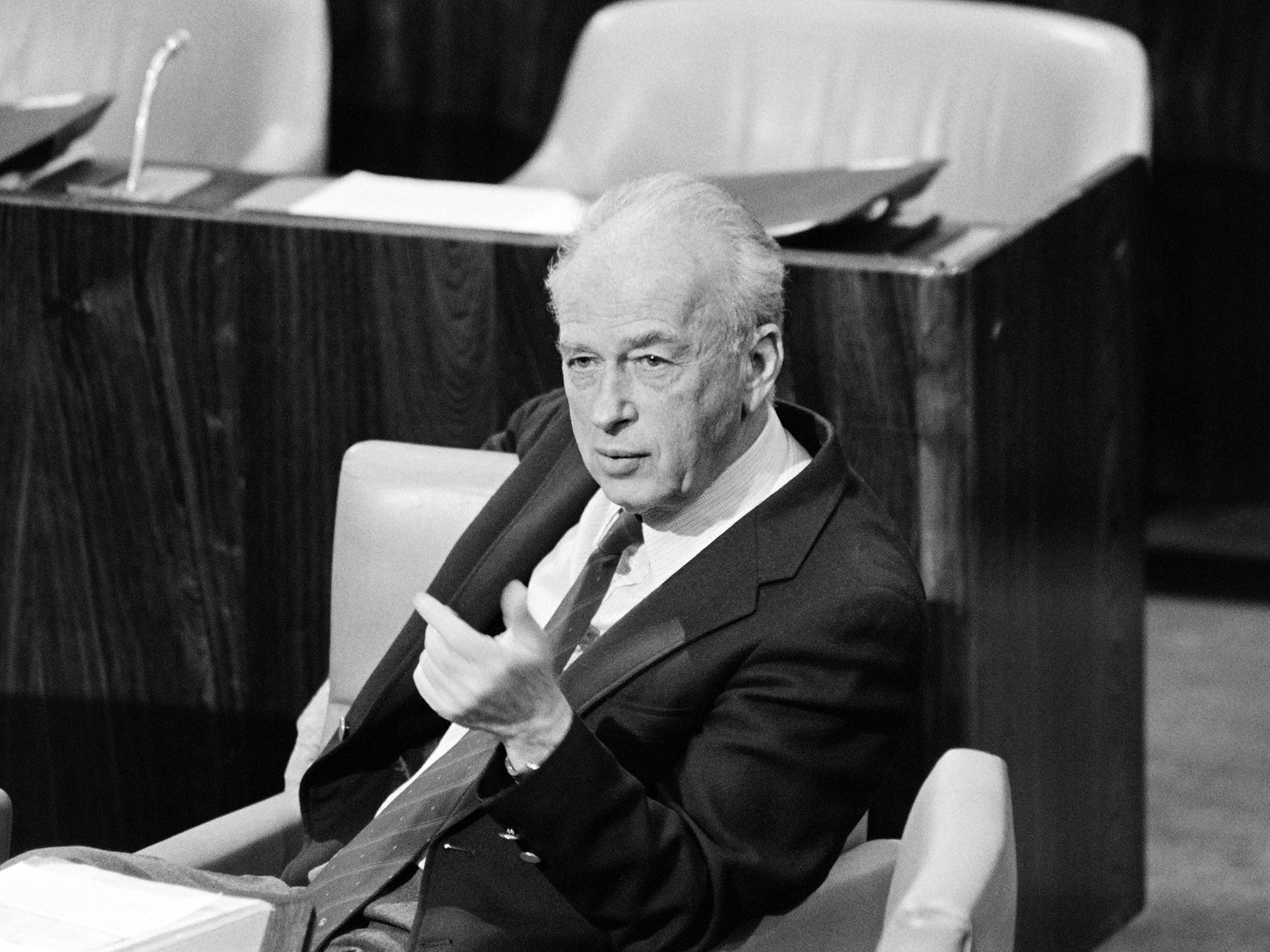Middle East crisis: Did Yitzhak Rabin’s killer really put paid to the best hope of peace?
Two decades after the assassination of the Israeli leader, Ben Lynfield hears a challenge to conventional wisdom

Your support helps us to tell the story
From reproductive rights to climate change to Big Tech, The Independent is on the ground when the story is developing. Whether it's investigating the financials of Elon Musk's pro-Trump PAC or producing our latest documentary, 'The A Word', which shines a light on the American women fighting for reproductive rights, we know how important it is to parse out the facts from the messaging.
At such a critical moment in US history, we need reporters on the ground. Your donation allows us to keep sending journalists to speak to both sides of the story.
The Independent is trusted by Americans across the entire political spectrum. And unlike many other quality news outlets, we choose not to lock Americans out of our reporting and analysis with paywalls. We believe quality journalism should be available to everyone, paid for by those who can afford it.
Your support makes all the difference.Would there have been peace between Israel and the Palestinians if Yitzhak Rabin had not been felled by an assassin 20 years ago?
Things certainly fell apart after the Israeli leader was shot in the back at the close of a 4 November 1995 peace rally in Tel Aviv, with hardliners on both sides slowing and derailing the fragile reconciliation process.
The two sides had started forging their reconciliation amid a realisation by Rabin that the Palestinian uprising in the West Bank and Gaza could not be ended by military force, and a desire by Yasser Arafat to break out of the isolation that plagued the Palestinian Liberation Organisation for backing Saddam Hussein in the run-up to the first Gulf War.
Tonight former US president Bill Clinton will be the keynote speaker in Rabin Square in Tel Aviv as thousands pay tribute to the memory of the man who reluctantly shook Yasser Arafat’s hand on the White House lawn, raising hopes for an end to the conflict.

The event coincides with a wave of violence in Israel, East Jerusalem and the West Bank that underscores that peace is perhaps further away than ever, and that, tragically, the two sides failed to go the distance from a limited agreement on launching Palestinian self-rule to an all-out peace treaty.
While pundits have faulted Benjamin Netanyahu, Yasser Arafat, Hamas and former Israeli prime minister Ehud Barak for this failure, it stems also from a fateful mistake by Mr Rabin himself, his former chief interlocutor with the Palestinians told The Independent this week.
The interlocutor, then deputy foreign minister Yossi Beilin, who oversaw the secret talks with the PLO, tried to convince Mr Rabin to seek a fully fledged treaty with the Palestinians that would resolve all the issues in dispute, including Jerusalem, refugees and borders, rather than settle for the self-rule agreement that left open all the thorniest matters for what was supposed to be a five-year interim period. They have never been resolved since.
“We had many differences,” Mr Beilin said of his weekly negotiation strategy meetings with Mr Rabin, which were also attended by foreign minister Shimon Peres and foreign ministry legal adviser Yoel Singer. “The most important thing for me was to try to convince him to have a permanent agreement in 1993, not to wait five years and not to have an interim agreement.”
But Mr Rabin was wary of trying to reach a permanent agreement because he feared failure, Mr Beilin recalled. “He said to me: ‘If we fail with the permanent one, we will not be able to convince the Palestinians to negotiate an interim one, because they will say: “We know your permanent vision and we are not going to play the game.”’ But if we fail in the interim one, he said, you can always get back to it.”
Mr Beilin said: “This was a big mistake.” By making this decision, Mr Rabin squandered a concurrence of factors that would not return, Mr Beilin says. “It is very difficult to get to the same point in history, whereby the PLO became much weaker because of its support for Saddam Hussein; on the Israeli side there was a commitment to have an agreement; and on the American side, you had a young and new president who wanted a success in foreign policy.
“So you had all the stars in place and you could have used it for something much bigger than an interim agreement.”
Join our commenting forum
Join thought-provoking conversations, follow other Independent readers and see their replies
Comments